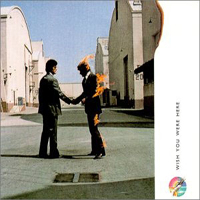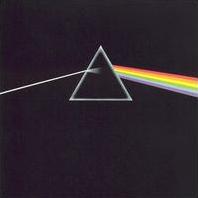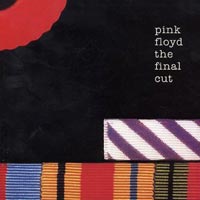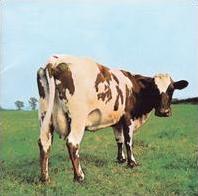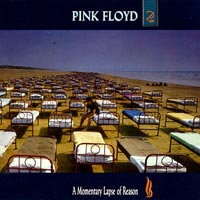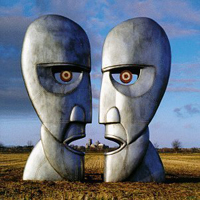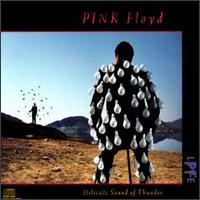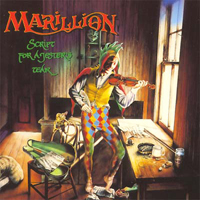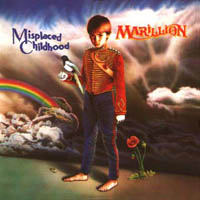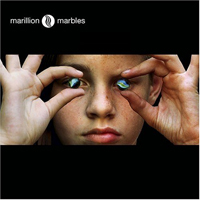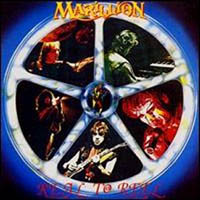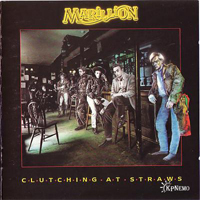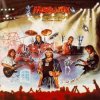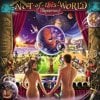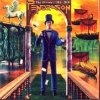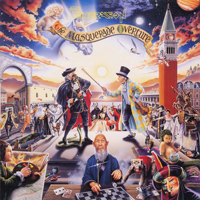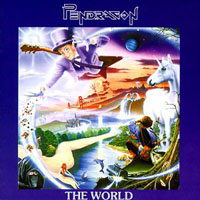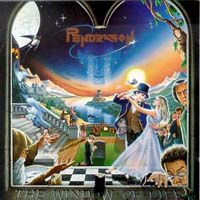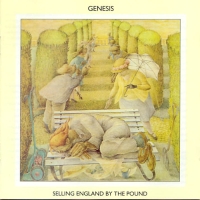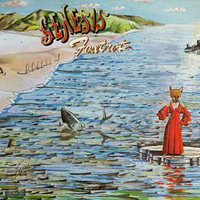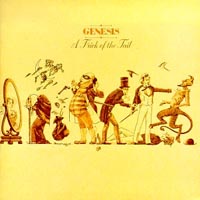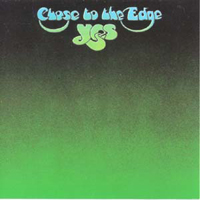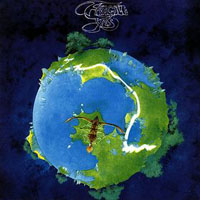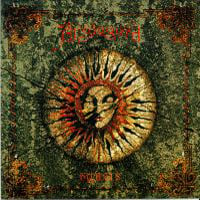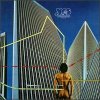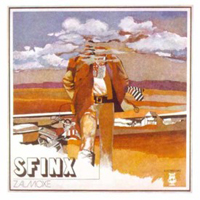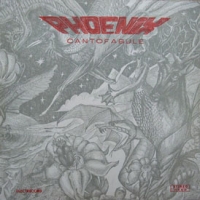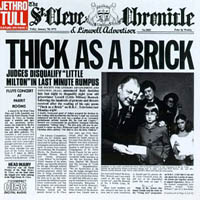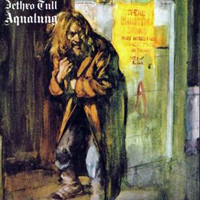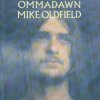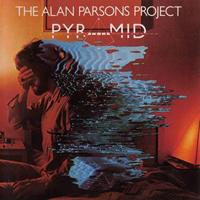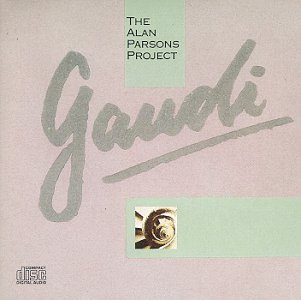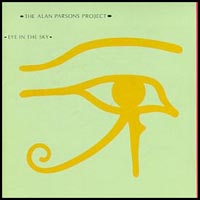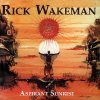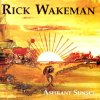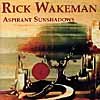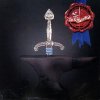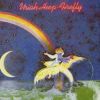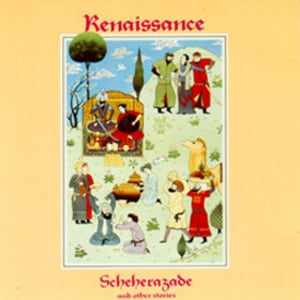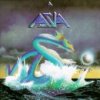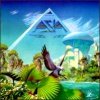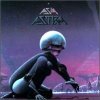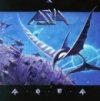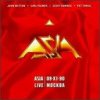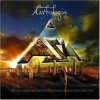 The roots of Camel can be already found in 1969 when guitarist/flute player/vocalist Andrew Latimer (born on May 17, 1947), bassist Doug Ferguson and only 14-year-old drummer Andy Ward met in the band The Brew as a trio. In 1970, the trio teamed up with singing keyboardist and changed the name according to him to Phillip Goodhand – Tait. But at the end of the same year, Phillip quit the band. In May of 1971, Peter Bardens, a keyboard player (ex Them), came to strengthen the orphaned trio. The new quartet formed in Surrey chose the name Camel. December 4, 1971 was the day of the band first performance as a support band of more famous Wishbone Ash.
The roots of Camel can be already found in 1969 when guitarist/flute player/vocalist Andrew Latimer (born on May 17, 1947), bassist Doug Ferguson and only 14-year-old drummer Andy Ward met in the band The Brew as a trio. In 1970, the trio teamed up with singing keyboardist and changed the name according to him to Phillip Goodhand – Tait. But at the end of the same year, Phillip quit the band. In May of 1971, Peter Bardens, a keyboard player (ex Them), came to strengthen the orphaned trio. The new quartet formed in Surrey chose the name Camel. December 4, 1971 was the day of the band first performance as a support band of more famous Wishbone Ash.In August of 1972, Camel signed the contract with MCA Records and by the end of 1973, the band released the debut album "Camel". After having changed record labels and signed with Decca's Gama, the band issued the follow-up "Mirage". The cover inspired by a homonymous cigarette packet attracted the unwanted attention of the American cigarette branch, which wanted to change the cover; otherwise they would sue the band. The American record company quickly developed a new cover to avoid the lawsuit. The band members were really upset because of it and Peter Bardens sarcastically renamed the title song of the album to "Twenty Sticks of Cancer".
In 1975, the band decided to record a concept album based on a book story. Bassist Doug Ferguson suggested Paul Galico's "The Snow Goose", which has become a very successful issue. On October 17, 1975, Camel together with the London Symphony Orchestra performed "The Snow Goose" in the sold-out Royal Albert Hall. The self-titled instrumental song of the album has reached the greatest success.
In April of 1977, bassist Doug Ferguson quit the band being replaced by Richard Sinclair (ex – Caravan) for a year. Saxophonist Mel Collins, who was spending most of his time in the studio and touring with the band, became an official band member up until August of 1979.
On July 30, 1978, keyboardist Peter Bardens, who was quarrelling with Latimer for a longer time, left the band. Their conflict already developed during recording LP "Rain Dancers". Bardens left very reasonably after the band had completed the album "Breathless". Two keyboardists Kit Watkins and Jim Schelhaas replaced Bardens for a couple of months. Bassist Colin Bass was brought in to the band to replace Sinclair.
Both recording the conceptual album "Nude" describing the story of a soldier forgotten on an island during the World War II and following world tour in mid-1981 had a very destructive effect on all band members. Andy Ward succumbed to alcohol and drugs and tried to commit suicide, fortunately unsuccessfully. He has been saved, but it resulted in a long-time interruption of both recording a new album and tours. Decca Records, however, was not interested in problems inside the band itself and they wanted Camel, in compliance with the contract, to record next new stuff. Latimer having understood that his friend and drummer in one person Andy Ward could not recover in such a short time, had to ask for a help musicians like vocalist Chris Rainbow, singing bassist David Paton, guitarist Anthony Phillips (ex – Genesis), keyboardist Francis Monkman (Sky) and drummers Simon Phillips (Who, Jeff Beck, Toto), Dave Mattacks (Fairport Convention), and Graham Jarvis (Cliff Richard). They together issued the new album "The Single Factor". Peter Bardens took part in recording the song "Sasquatch". Andy Ward joined the musicians on the road but later, after nearly 13 years of being a member of Camel, he definitively left.
In 1983, guitarist Andy Latimer met Dutch keyboard player Ton Scherpenzeel (Kayak) who he recorded the conceptual album "Stationary Traveller" with. The album was recorded in London with the support of bassist Colin Bass and new drummer Paul Burgess (Jethro Tull, 10cc). Camel having been encouraged by a great response set out on a tour. The line-up consisted of Andrew Latimer, Colin Bass, Chris Rainbow and Paul Burgess. Ton Scherpenzeel, however, was not touring with the band because of his "travelling by plane-phobia". The live gig of the "Stationary Traveller" tour was recorded on May 11, 1984 and issued on videocassette and CD entitled "Pressure Points". Visiting Peter Bardens as well as keyboard player Richie Close, who sadly died a few months later due to Legionnaire's disease, took part in the mentioned concert.
In mid-1980s, Decca stopped supporting the band and Latimer had to face the lawsuit filed by former Camel manager Geoff Jukes. The stressful process took a long time but it has resulted in Latimer's victory. Soon after in mid-1988, Latimer sold his house in London and then moved to California where he established a small independent studio Camel Productions. New Camel album "Dust and Dreams" was recorded there in 1990.
In August of 1992, after a 7-year break, Camel set out on a tour again. Drummer Paul Burgess and keyboardist Mickey Simmonds (Fish, Mike Oldfield) joined Andrew Latimer and Colin Bass.
A year later, Latimer's father died. This grievous lost has inpired him to write the song "The Hour Candle" (A Song for My Father) included in the album "Harbour of Tears" of early 1996.
In 1997, Camel began a tour again. Burgess was replaced by Dave Stewart and Foss Patterson replaced Simmonds. The band performed in the Czech Republic as well. In October of 1999, Camel issued the LP "Rajaz" composed by Latimer and recorded with the participation of returned keyboardist Ton Scherpenzeel. The live release "The Paris Collection" was recorded during Y2K Kayak album tour on September 30, 2000. 71-minute long CD includes 10 songs warmly accepted by fans as well as the bonus "Slow Yourself Down" originated during rehearsals.
On January 22, 2002, the first Camel keyboardist, Peter Bardens, died of the lung-cancer.
Camel issued the anthology "Lunar Sea: An Anthology 1973 – 1985" on March 27, 2002.
The seven song new album "A Nod and a Wink" of the line-up consisted of Latimer, Guy LeBlanc, Colin Bass, and Denis Clement appeared on August 13, 2002.
Camel will be headlining NEARfest on June 29th 2003. This marks the band's first concert on the US east coast in 28 years. The band will consist of Andrew Latimer, Colin Bass, Guy LeBlanc and Denis Clement.
Camel have announced that the 2003 tour will be their last. Increasing difficulties with booking viable concert dates in an unpredictable market have greatly contributed to this sad decision. However, Camel's Andy Latimer stresses that the band will continue making music.
Camel have been forced to postpone the European leg of their farewell tour. Keyboardist Guy LeBlanc's wife suffered a heart attack at the beginning of May and he has returned to Canada to be there for her and his children. It is expected that LeBlanc will not be returning to Camel soon due to the seriousness of the situation. Therefore all dates of European tour have been postponed until the Autumn. The USA tour will go ahead according to the plan.
Camel have found two replacement keyboard players for Guy LeBlanc, who had to bow out for personal reasons. Tom Brislin, who recently toured with Yes on their Yessymphonic tour, will be joining Camel on the USA leg of the tour, while old Camel cohort Ton Scherpenzeel, who previously worked with the band in the early eighties, will be tinkling the ivories on the postponed European leg. Source: http://www.camelproductions.com



